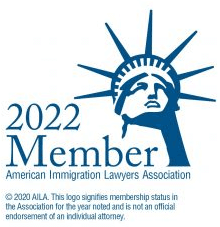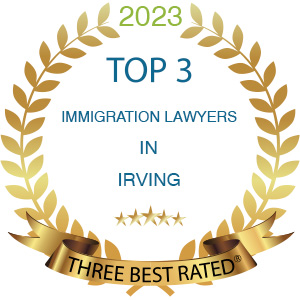
Office Location is Irving, Texas and Albuquerque, New Mexico
Call 214-609-2242
How to Show Hardship When Applying for Waivers of Inadmissibility

For many immigrant families, the ability to live together in the United States is essential, and it may be a goal that can take years to achieve. In some cases, family members may be fleeing dangerous situations, or some family members may have already settled in the U.S., and they may wish to bring their loved ones to live with them. However, there are many issues that can impede the immigration process, including when a person is determined to be inadmissible to the United States.
Fortunately, waivers of inadmissibility may be available in certain situations. These waivers allow immigrants to overcome a finding of inadmissibility and ensure that they can receive visas and Green Cards. To qualify for a waiver of inadmissibility, a person will need to meet several criteria, and one of the most important involves showing that if they cannot enter or remain in the U.S., their family members may suffer hardship. Understanding what types of hardship may qualify and how to demonstrate this to immigration officials is not always easy, but with the assistance of a skilled immigration attorney, families can provide the necessary evidence and address any other issues that may arise in their case.
Demonstrating Extreme Hardship
In general, a person who applies for a waiver of inadmissibility will need to show that if they are deported or prevented from entering the United States, this would could "extreme hardship" for a qualifying family member. Applicable family members include the spouse or parent of a person who is applying for a waiver, as long as the family member is a U.S. citizen or has a valid Green Card.
U.S. immigration laws recognize that there are some consequences that commonly occur when immigrants are found to be inadmissible. These include the separation of families, financial difficulties, problems adjusting to living in a different country, limited employment and educational opportunities, and fewer options for receiving quality medical care. To be considered "extreme hardship," the issues that a family may face will typically need to exceed these common consequences. However, immigration officials will consider the totality of a family's situation, and the accumulation of multiple different factors may make a person eligible for a waiver of inadmissibility.
For example, if a person is currently living in the United States with their spouse, who is a Green Card holder, and the spouse has a disability that requires regular medical care and prevents them from working, the deportation of the other spouse could cause extreme hardship for the couple. The disabled spouse may no longer be able to provide for themselves if they remain in the United States, and if they leave the country with their spouse, they may not have access to the proper medical care in another country. If other factors are also considered, such as the difficulty of adjusting to living in an unfamiliar country, the family's circumstances may rise to the level of extreme hardship, and a waiver may be granted.
Contact Our Irving Waivers of Inadmissibility Lawyers
For those who have been deemed inadmissible, the possibility of being forced to leave the United States or being prevented from living alongside their family members can be very distressing. To avoid these problems, immigrants will need to understand their options for applying for waivers of inadmissibility. At John W. Lawit, LLC, we can assist with applications for these waivers, and we can make sure the proper evidence is provided to show that a family meets the extreme hardship requirements. To learn how we can assist with these issues, contact our Bedford immigration attorneys at 214-609-2242 and schedule a consultation.
Sources:
https://www.uscis.gov/i-601
https://travel.state.gov/content/travel/en/us-visas/visa-information-resources/waivers.html
https://www.uscis.gov/policy-manual/volume-9-part-b-chapter-5


















